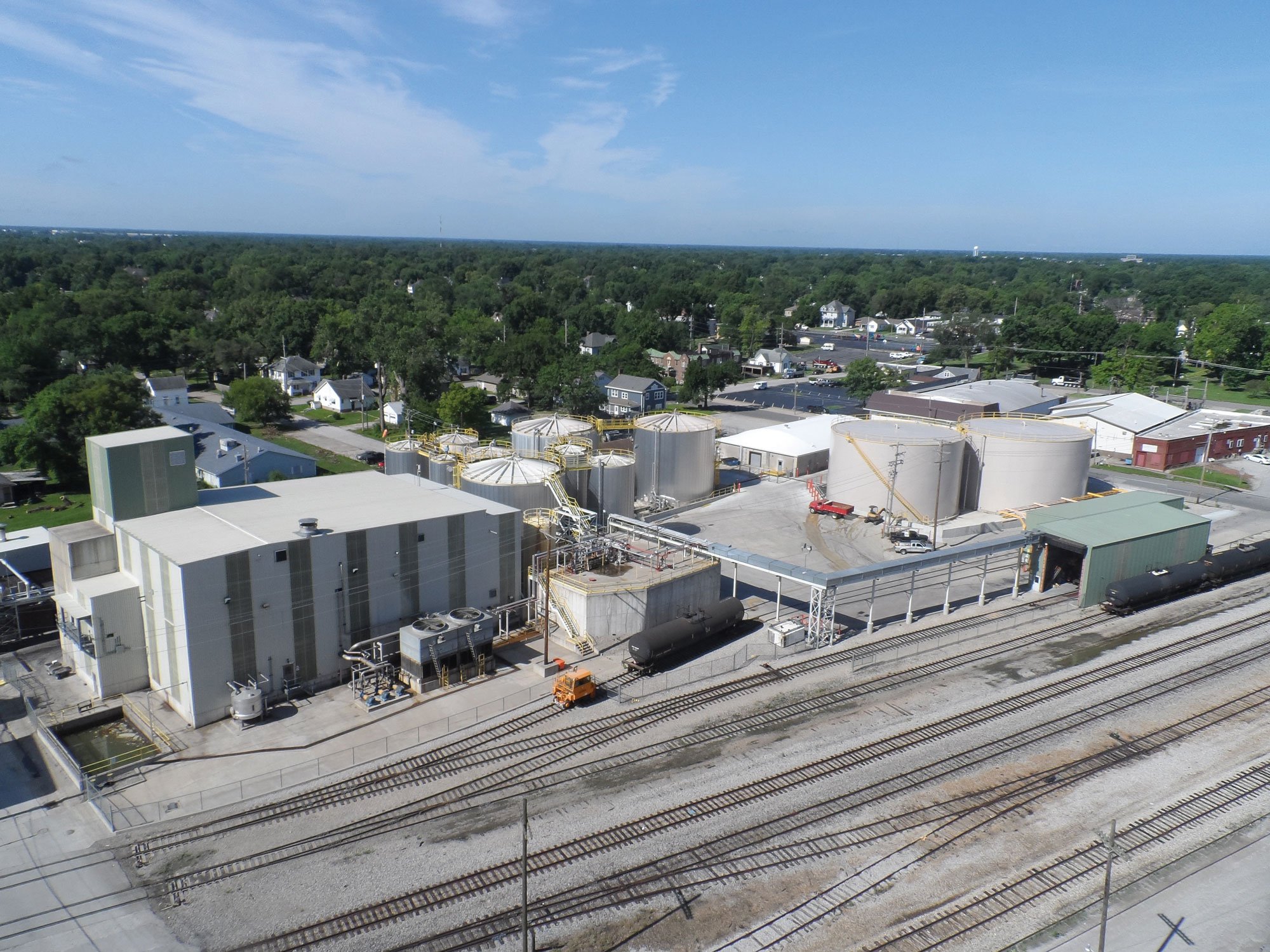
Biodiesel Producer Grows with Industry
November 5, 2017
Written By Michelle Cummings
For the past 11 years, Mid-America Biofuels, a biodiesel production plant in Mexico, Mo., has become a large contributor to the growing renewable fuels industry. The plant, which became Missouri’s first large-scale biodiesel production facility when it opened in 2006, has grown from its original production capacity of 30 million gallons to 50 million gallons of product per year.
Mid-America Biofuels is a joint venture of Biofuels LLC, a farmer-owned cooperative; Archer Daniels Midland Company (ADM); MFA Oil Company; Ray-Carroll County Grain Growers; and Growmark, Inc.
The biodiesel produced at Mid-America Biofuels is made through a chemical process called transesterification, which separates glycerin from soybean oil. The process results in two products: biodiesel and glycerin, which in its refined form can be used to manufacture soap, cosmetics, pharmaceuticals and many other products. Missouri is currently the second-leading producer of biodiesel in the country, but remains low on the list of biodiesel consumption by state.
“We invested in Mid-America Biofuels to support biodiesel production in Missouri, and to add value to the soybeans produced by the state’s farmers,” says James Greer, MFA Oil vice president of supply and government affairs. “While biodiesel had made good progress, we think there is great opportunity to raise the level of biodiesel consumption in Missouri.”
Though most biodiesel plants rely on soybean oil for feedstock, there are other resources the industry can use to make the biofuel, such as corn oil, animal fats and recycled cooking oil. The diversity of feedstocks has made it possible for more companies to enter the market.
“Biodiesel isn’t just an industry in the Midwest,” says Cliff Smith, plant manager of Mid-America Biofuels. “Companies across the country, all the way from San Diego to New York, have gotten into the business. We are also facing competition from other countries importing the product, such as Argentina.”
Complicating matters for the biodiesel industry, a biofuels tax credit expired at the end of 2016 and has not been renewed.
“Biodiesel producers are unsure at the beginning of every year if we will have a blender’s tax credit to rely on financially,” says Smith.
In a recent decision, the U.S. Department of Commerce found that Argentina and Indonesia provide subsidies to their biodiesel producers in violation of international trade rules. As a result of the department’s ruling, importers of Argentinian and Indonesian biodiesel will be required to pay cash deposits on biodiesel imported from those countries.
Another measure aimed at supporting U.S. biodiesel production includes a new bipartisan biodiesel tax credit bill. The bill is expected to convert the recently expired tax credit for blenders of biodiesel to a credit for U.S. biodiesel producers in an effort to incentivize domestic production.
Domestically, biodiesel utilization has grown steadily over the past decade and reached a record high of 2.8 billion gallons in 2016.
In addition to growing its production, Mid-America Biofuels has focused on quality. The plant is recognized as meeting the industry’s highest quality standards as an accredited producer under the National Biodiesel Accreditation Program, BQ-9000. Plants achieving BQ-9000 accreditation have passed a rigorous review of its quality control processes by an independent auditor.
The BQ-9000 program helps companies improve their fuel testing and greatly reduce any chance of producing or distributing inadequate fuel. A good onsite lab is one key to ensure a good quality biodiesel is produced.
Mid-America Biofuels produces the majority of the biodiesel MFA Oil sells to customers.
“MFA Oil has access to as many biodiesel blending facilities as anyone in the state,” says Greer. “The nine different blending facilities in Missouri are important to help us get biodiesel out to locations where it’s needed.”
Farmers interested in purchasing biodiesel should contact their local MFA Oil plant manager. This is the best way to ensure biodiesel is in stock and available for purchase when farmers need it.

